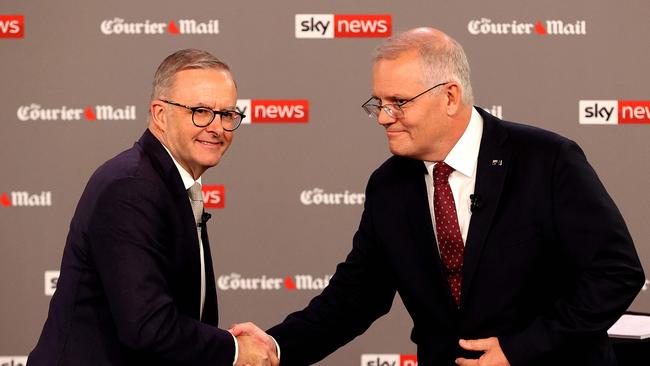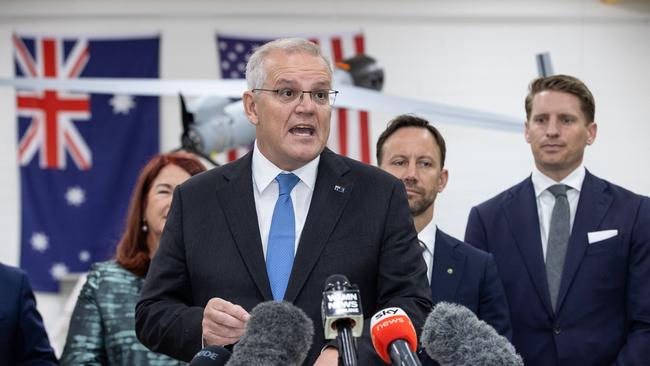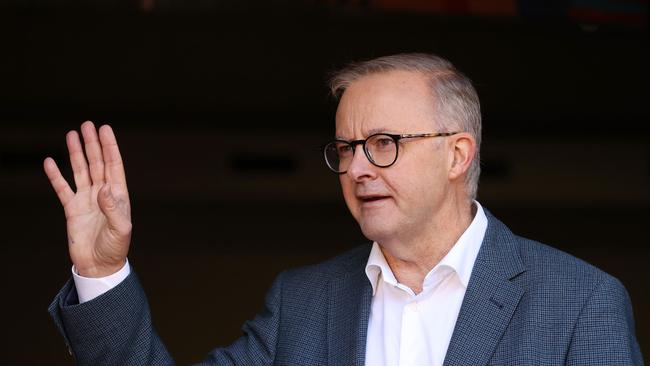New study reveals voters want cost of living to be biggest priority for next PM
Regardless of who becomes prime minister in just over two weeks, Australians want the man at the helm to focus on this major issue.
Almost two-thirds of Australians believe tackling the cost of living is the most important job for the next government.
With two weeks to go until Australians head to the polls, the two men vying for the prime ministership – Anthony Albanese and Scott Morrison – will need to convince millions of people they are the best person to weather the mounting pressures.
With inflation at 5.1 per cent – and tipped to rise further – and the Reserve Bank hiking interest rates for the first time in 12 years, alongside stagnating wage growth, Australians are facing unprecedented pressure to stretch their dollars.
According to new analysis from the Australian National University, almost two-thirds of the 3500 people polled said high living costs should be the No.1 priority of the next government – regardless of whether they were leaning to vote for Labor, the Coalition or neither.
Study co-author Nicholas Biddle said voters wanted cost of living to be urgently addressed, so much so that it outranked all other policy considerations.

“Interestingly, we also found that this was a view held by people who said they would vote for Labor, for people who said they would vote for the Coalition, and for those who weren’t planning on voting for either party.
“For Coalition voters, 60.8 per cent said this was the highest priority. Among Labor voters it was even higher, with 68.8 per cent saying the same.”
Both major parties have presented a myriad of ways they believe will help with mounting cost-of-living pressures.
Earlier this week, Mr Morrison – who has built much of his re-election pitch based on the idea that his party is the better economic managers – said Australia’s rising cost-of-living pressures were less than what other countries were facing.
“The situation Australia faces is a situation faced all around the world,” he said earlier this week.
“Australians understand that.”
Meanwhile, Mr Albanese said Labor’s focus would be on lifting pay and profits and making the economy more productive and childcare more affordable.

The study found the second highest priority (60.1 per cent) of the next government should be fixing the aged care system.
While Labor has presented a comprehensive policy to tackle the aged care crisis, the government has committed to the reforms outlined in the royal commission into aged care.
Other top priorities included strengthening the nation’s economy (54.4 per cent), reducing the cost of health care (53.5 per cent) and dealing with global climate change (52.8 per cent).
The study found the policy area voters were least concerned with was immigration.

The study found in terms of voting intention, there was a small drop in the number of people who said they’d vote for Labor – 34.3 per cent in April, down from 36.3 per cent in January.
Support for the Greens, meanwhile, increased slightly – from 14.2 per cent to 16.2 per cent, as did support for other parties, including independents, up from 10.3 per cent in January to 11.4 per cent in April.
The Coalition lost half a percentage point of support – 31.2 per cent in April, down from 31.7 per cent in January.
At the time of the study, 5.6 per cent of respondents had not made up their mind about who they would vote for.
“At the midway point of the campaign, Labor is in an election-winning position,” Professor Biddle said.

